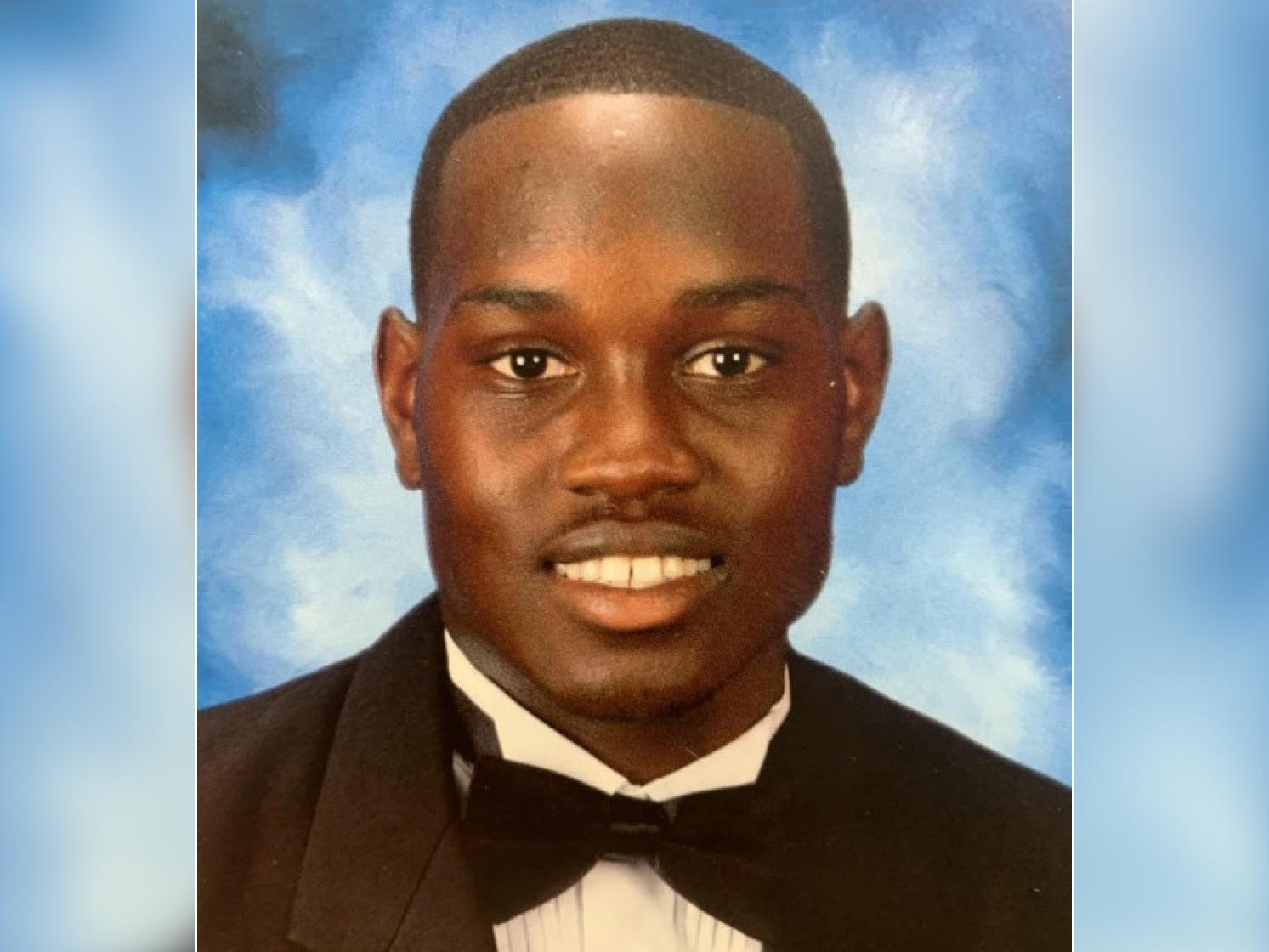Ahmaud Arbery: Defence attorney sparks outcry by noting victim’s ‘long, dirty toenails’ in closing argument
Defence attorney Laura Hogue’s ‘racist’ remark elicits gasps in the Georgia courtroom
A defence attorney for one of three men convicted of the murder of Ahmaud Arbery sparked outcry by describing the victim’s “long, dirty toenails” during her closing argument.
Gasps rippled through the Glynn County, Georgia, courtroom when Gregory McMichael’s lawyer Laura Hogue made the remark as part of a broader effort by the defence to paint Mr Arbery as a criminal, and the three defendants accused of killing him as heroes.
“Turning Ahmaud Arbery into a victim after the choices that he made does not reflect the reality of what brought Ahmaud Arbery to Satilla Shores in his khaki shorts with no socks to cover his long, dirty toenails,” Ms Hogue told jurors on Monday.
She appeared to be referencing an autopsy by the Georgia Bureau of Investigation, which described Mr Arbery’s toenails as “long and very dirty”.
Mr Arbery’s mother, Wanda Cooper-Jones, responded by standing to leave the courtroom. “I gotta get outta here,” she said on her way.
The remark prompted outrage outside the court as well, as experts accused Ms Hogue of drawing on centuries-old racist tropes.
It came at the tail-end of a trial which has shone a spotlight on racist roots of vigilante justice.
Gregory McMichael, his son Travis McMichael and their neighbour William “Roddie” Bryan were all found guilty on Wednesday of the felony murder of Mr Arbery on 23 February 2020.
The three men, who are white, chased the 25-year-old Black man through the Satilla Shores neighbourhood near Brunswick before Travis McMichael shot him dead. Their defence attorneys have asserted that the men were justified in pursuing Mr Arbery because they suspected he was responsible for a string of burglaries in the weeks prior, and in killing him because they claim he tried to grab the gun.
McMichael, his son Travis, and their neighbour, Bryan, faced a total of nine state charges, including malice murder, felony murder, false imprisonment, aggravated assault with a 12-gauge shotgun, and aggravated assault with pickup trucks.
They had pleaded not guilty on all charges but the jury roundly rejected their claims in delivering their verdict.
Travis McMichael, the man who shot Mr Arbery, was found guilty on all nine counts.
Gregory McMichael, who rode in the same truck as his son Travis, where the men were armed with a pistol and a shotgun, was found not guilty of malice murder, but guilty on all other counts.
Bryan, who joined the pursuit in his own truck and filmed the encounter on his phone, was found not guilty of malice murder and one count of felony murder, while being held guilty on three other counts of felony murder and three other charges.
Ms Cooper-Jones, the victim’s mother, explained her disgust at Ms Hogue’s toenail comment to CNN on Monday.
“I thought it was very, very rude to talk about his long, dirty toenails and to totally neglect that my son had a huge hole in his chest when he was shot with that shotgun,” she said.
She said she believes the remark was made because the defence knows its case is weak.
“[They] don’t have the proper evidence to get a conviction,” Ms Cooper-Jones said in apparent reference to the defence’s efforts to portray her son as the real criminal in the case.
“So they’re actually going to any measure to get it, to get a conviction, which is not there for them.”
Charles Coleman Jr, a civil rights attorney and former prosecutor, told CNN he believes Ms Hogue’s comment had a more sinister aim: to present Mr Arbery as a “runaway slave”.

“Her word choice was intentional, her descriptions were unnecessary. And the description ultimately is inflammatory,” Mr Coleman said.
He said Ms Hogue was trying to “trigger some of the racial tropes and stereotypes that may be deeply embedded in the psyche of some of the jurors”.
Another former prosecutor, Mark Eiglarsh, said the comment could work in favour of the defence with the jury.
“As outrageous and offensive as I found it personally, I know that she wouldn’t have made it if she didn’t think it would resonate with those particular jurors," Mr Eiglarsh told CNN.
Only one of the jurors was Black and the other 11 were white. The panel’s racial make-up had drawn scrutiny because it doesn’t match that of Glynn County, where 69 per cent of the population is white and 27 per cent is Black.
Subscribe to Independent Premium to bookmark this article
Want to bookmark your favourite articles and stories to read or reference later? Start your Independent Premium subscription today.




